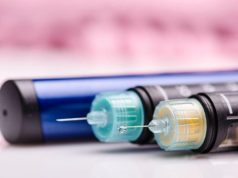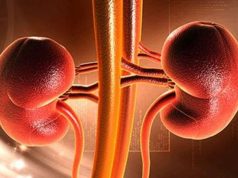Findings among newly diagnosed diabetes patients undergoing short-term intensive insulin therapy
THURSDAY, Dec. 14, 2017 (HealthDay News) — Stricter glycemic control during short-term intensive insulin therapy for newly diagnosed type 2 diabetes patients is associated with a higher likelihood of remission at one year, according to a study published online Nov. 30 in the Journal of Diabetes Investigation.
Liehua Liu, M.D., Ph.D., from First Affiliated Hospital of Sun Yat-Sen University in China, and colleagues sought to determine optimal glycemic targets during short-term intensive insulin therapy in patients with newly diagnosed type 2 diabetes. Insulin pumps were used to achieve and maintain glycemic targets (fasting blood glucose < 6.1 mmol/L; two-hour post-prandial blood glucose < 8 mmol/L) for 14 days. Daily 8-point capillary blood glucose profiles were recorded.
The researchers found that mean blood glucose was independently associated with improving acute insulin response (P = 0.015) and one-year remission (odds ratio, 0.12) but negatively associated with more Level-1 hypoglycemia (P = 0.001). Major hypoglycemia was rare. Patients in the middle and lower mean blood glucose tertiles had higher one-year remission rates versus the upper tertile (68.7 and 75 percent versus 32.3 percent; both P < 0.001). Compared with the upper tertile, only the middle tertile did not have increased hypoglycemia (P = 0.48).
“Based on glycemic parameters in the middle mean tertile, we propose new glycemic targets that are about 0.4 mmol/L lower than current ones as long-term benefit outweighs short-term risks,” the authors write.
Copyright © 2017 HealthDay. All rights reserved.








